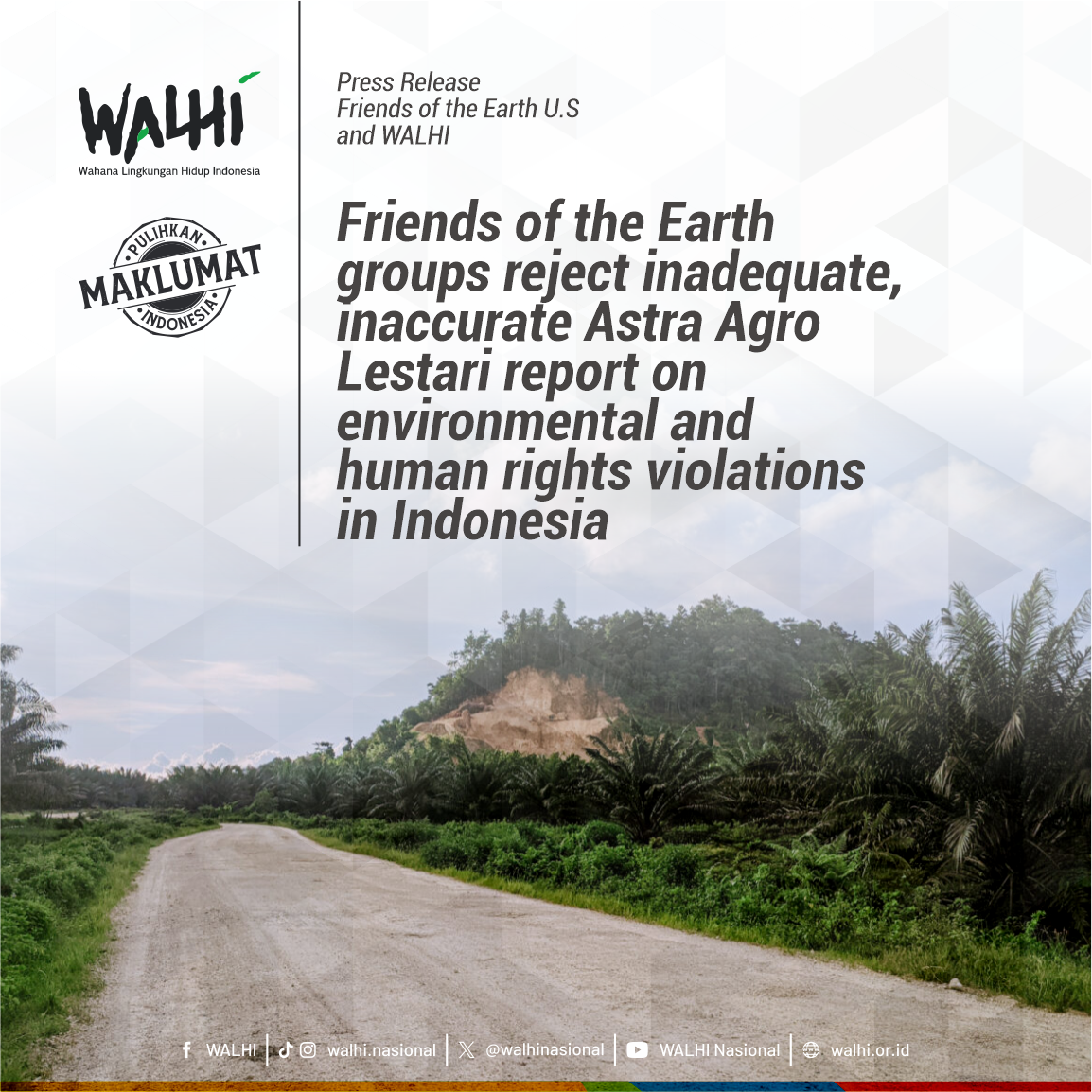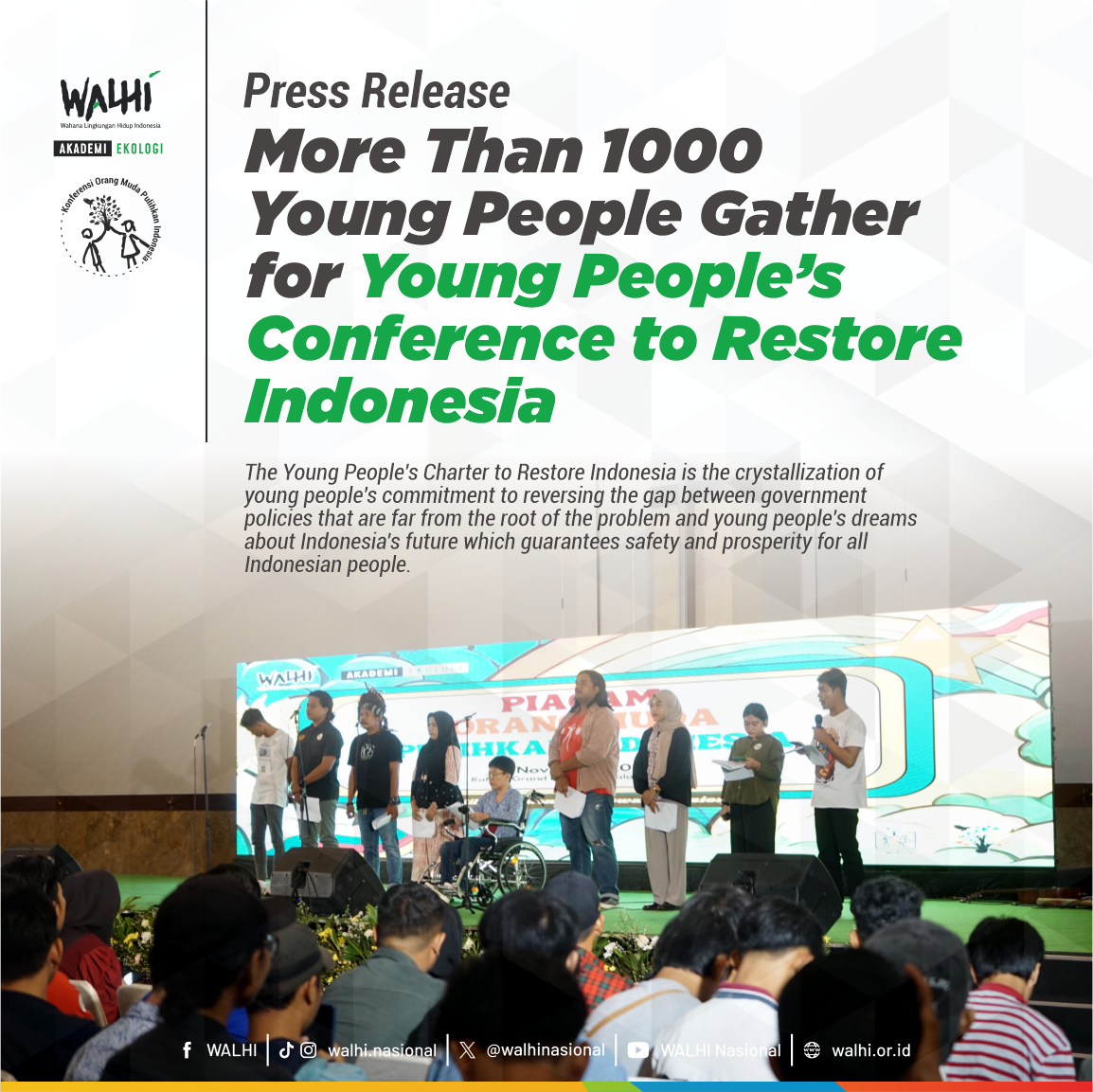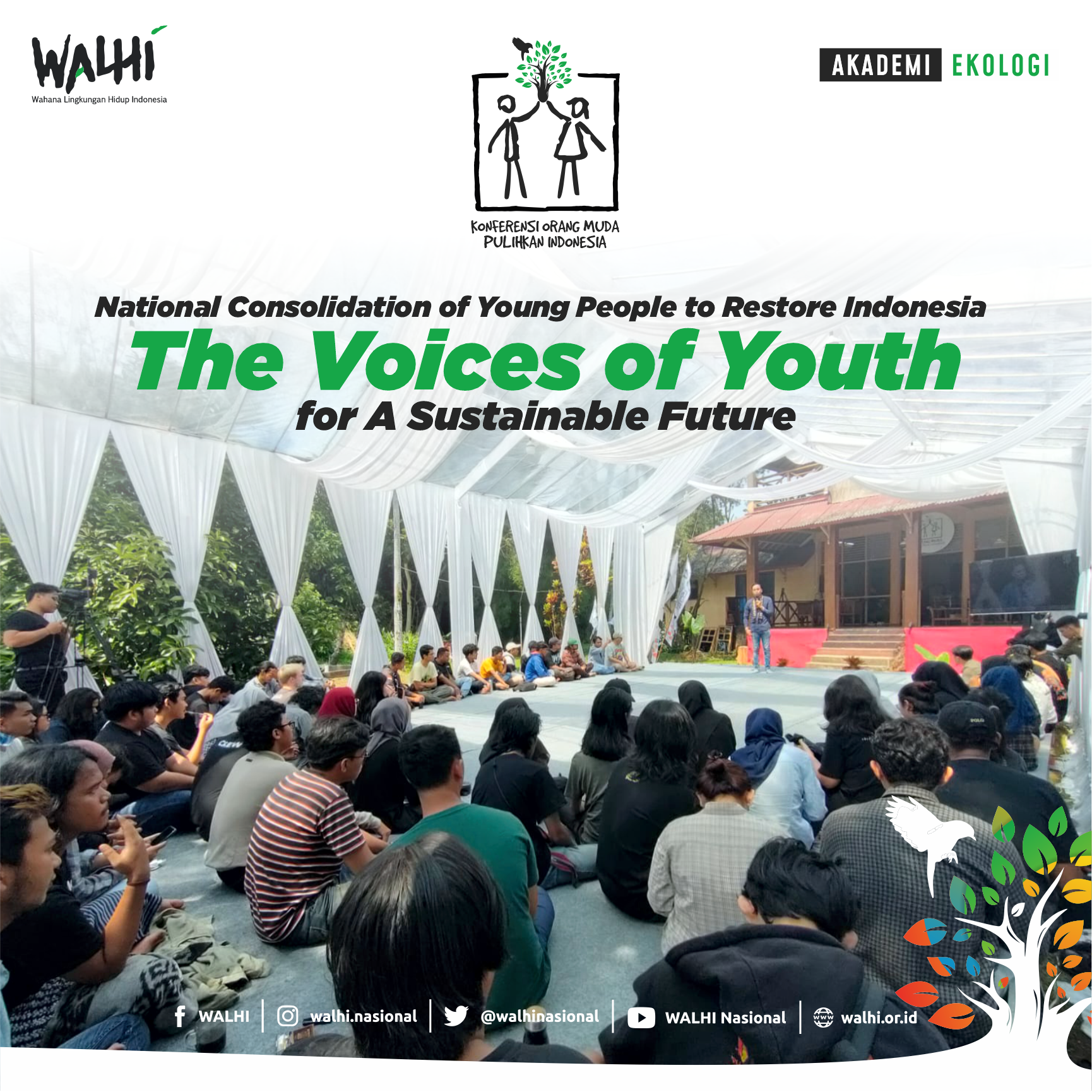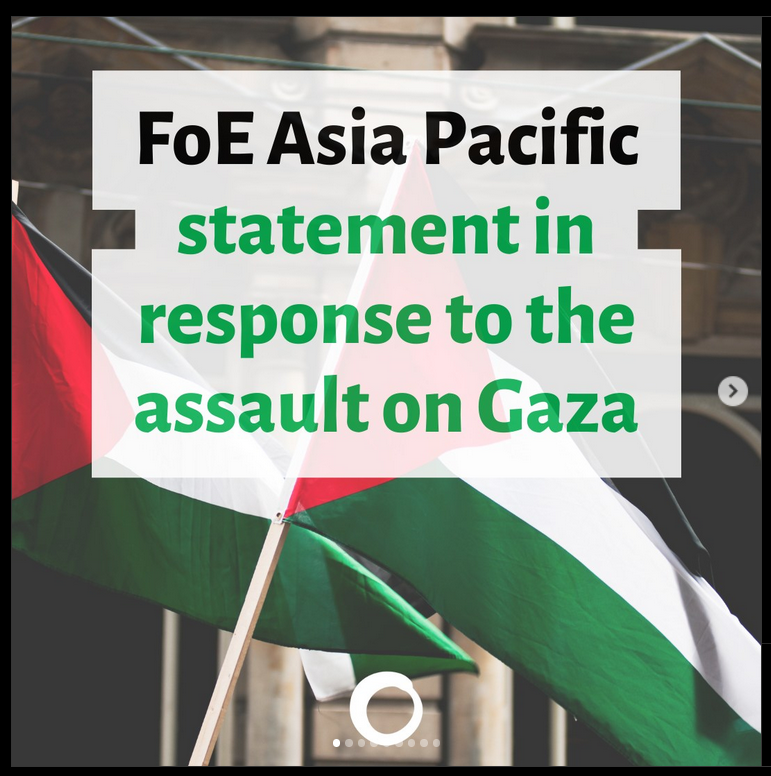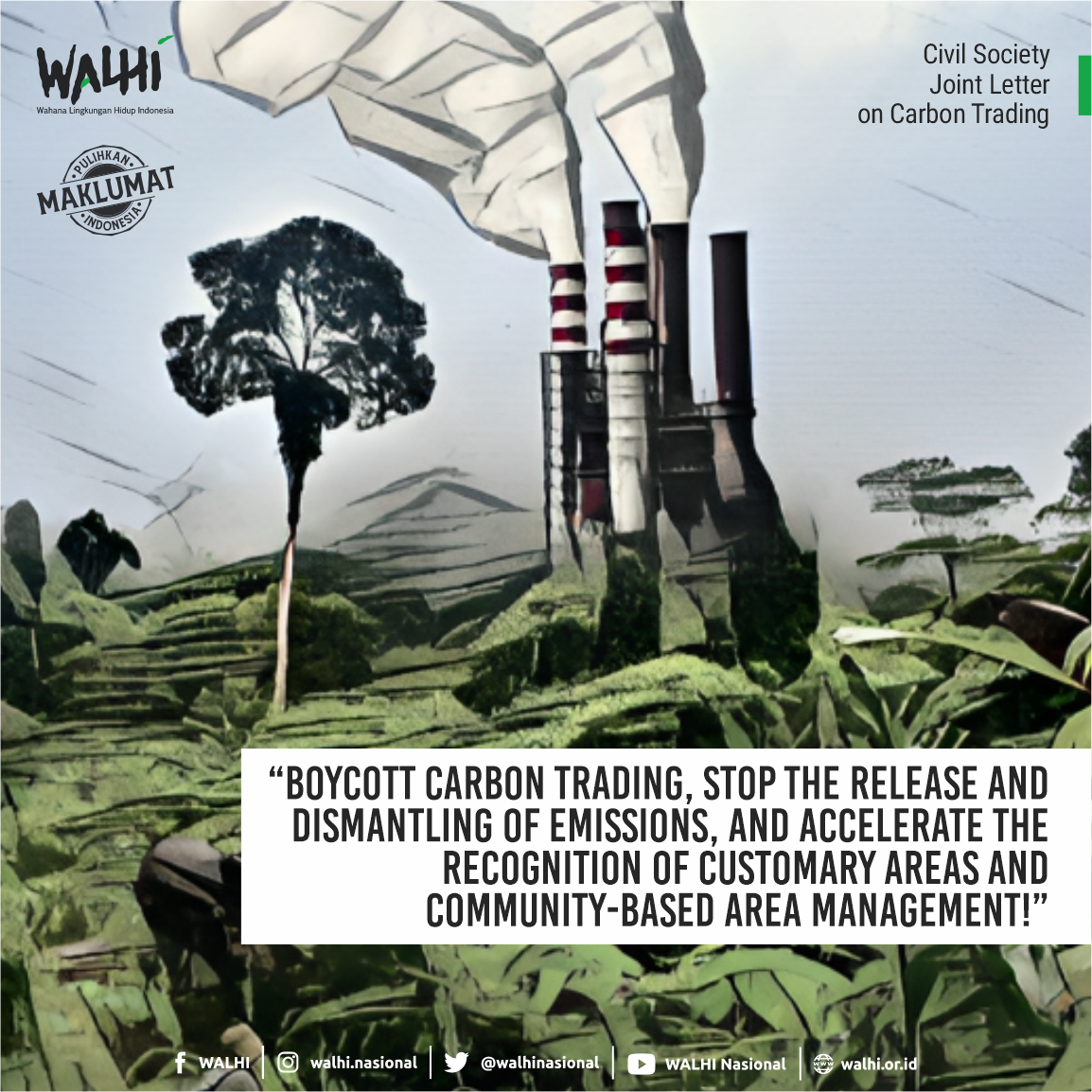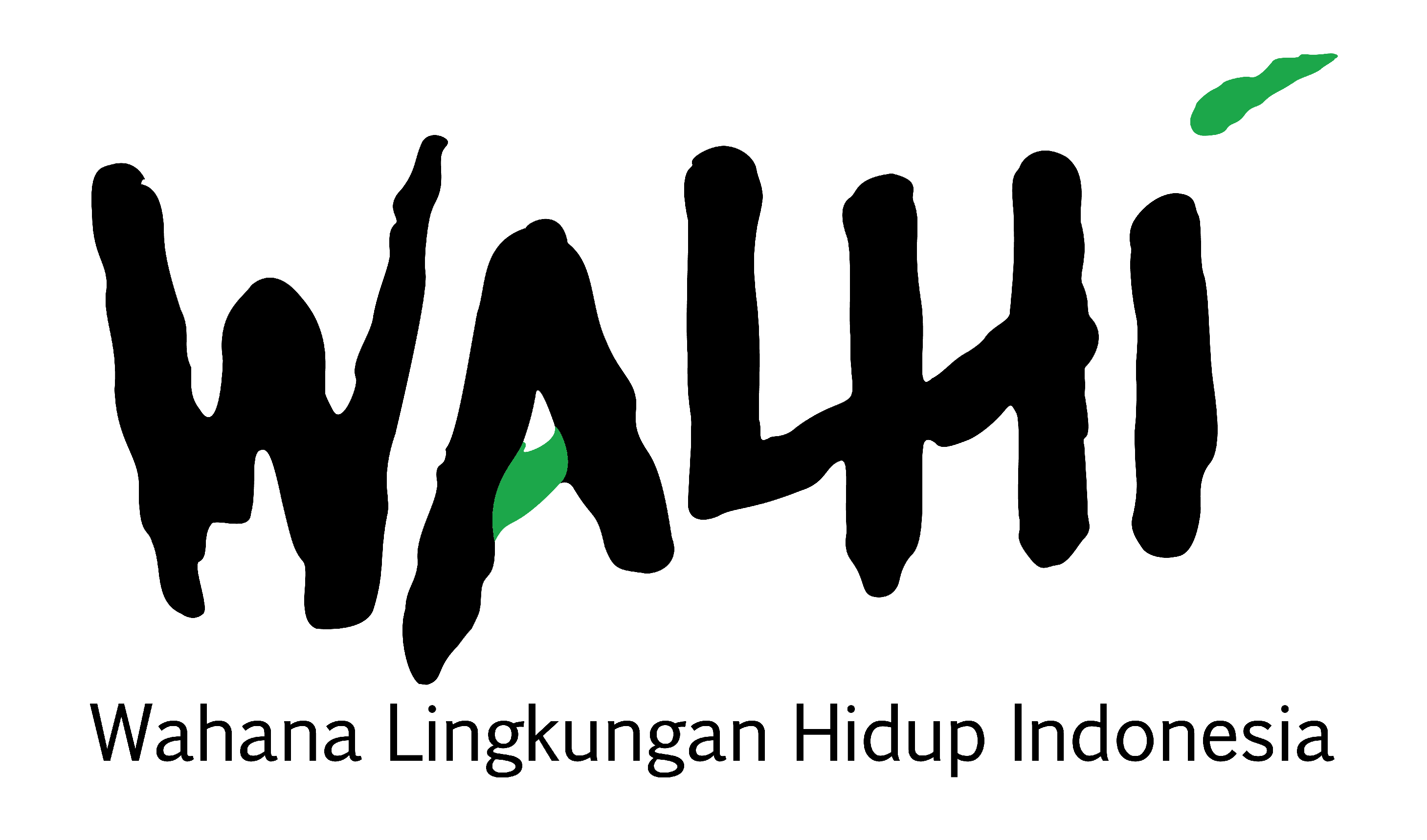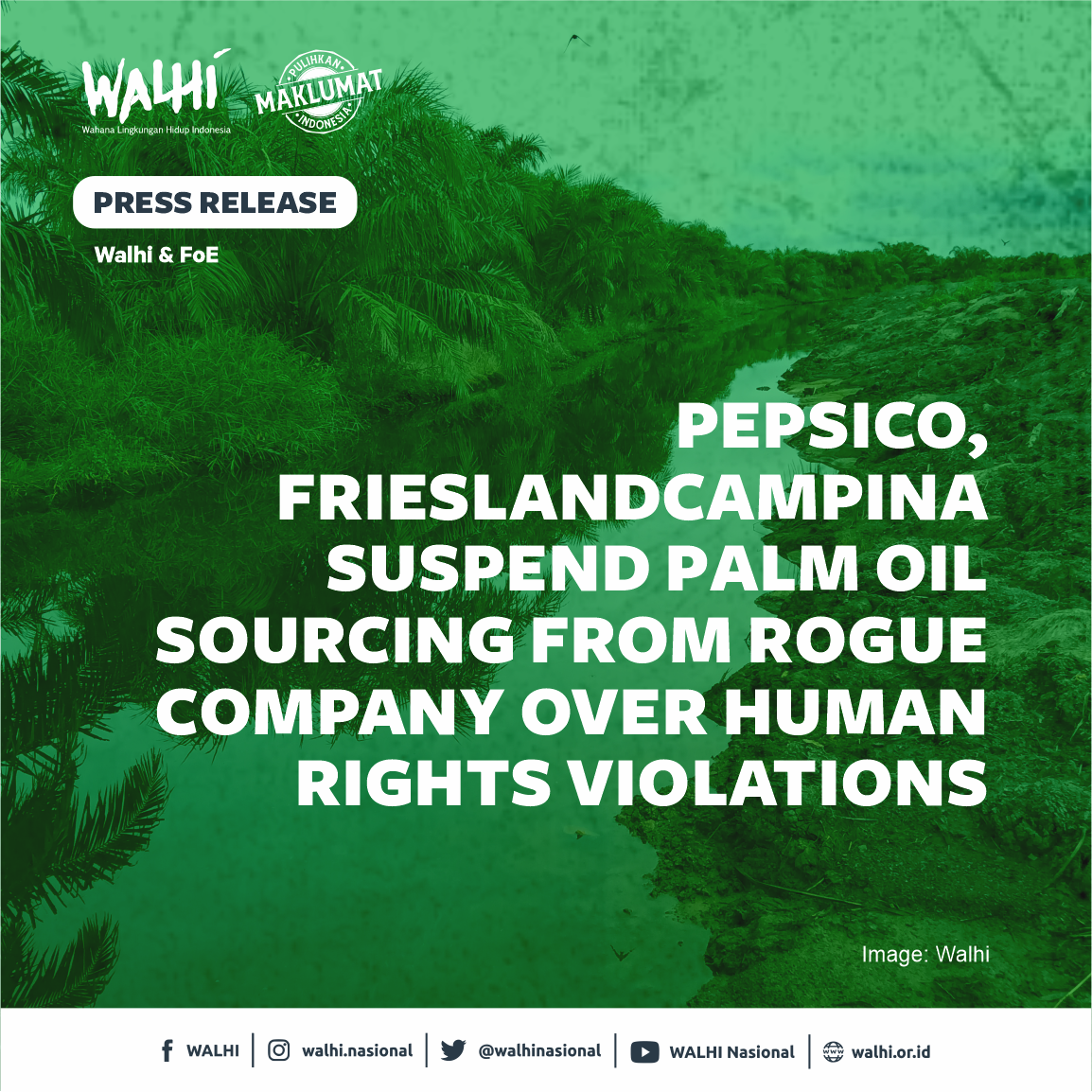
Press Release
Jakarta-Washington - Last week, PepsiCo and FrieslandCampina confirmed they have suspended sourcing from Astra Agro Lestari (AAL), following investigations into environmental and human rights violations by the palm oil company in Central and West Sulawesi, Indonesia.
PepsiCo informed Friends of the Earth U.S. that it has suspended sourcing from five mills potentially linked to AAL’s destructive operations. FrieslandCampina suspended all sourcing from AAL and took the additional step of directing its suppliers to do the same. The announcement follows decisions by 6 other leading consumer goods companies, including Hershey’s, Nestle, and Procter & Gamble, to cut ties with Indonesia’s second largest palm oil company.
“These suspensions prove that AAL’s destructive practices aren’t going unnoticed,” says Uli Arta Siagian, Forest and Plantation Campaigner at Walhi. “AAL should read the writing on the wall and return land back to communities that was taken without their consent. AAL must also provide compensation for loss of livelihoods, clear the good names of those who have been unjustly criminalized, and issue an apology for its abuses. Consumer goods companies continue to make billions of dollars of profits while sourcing from palm oil companies that terrorize farmers and communities. They must use their global platforms and brand recognition to demand AAL remedy the harm it’s done.”
AAL has faced mounting pressure over the past year after a report published in March 2022 by Walhi and Friends of the Earth U.S. documented how AAL subsidiaries were operating on communities’ land without their consent and criminalizing local farmers and Environmental Human Rights Defenders. The case received global attention when Indigenous Peoples and international civil society organizations joined calls for justice to be delivered to impacted communities. Although 8 leading consumer goods have cut ties withAAL, Consumer Goods Forum members including Mondelez, Kellogg, and Unilever continue to include AAL’s palm oil in its supply chains.
“For communities on the frontlines of a violent system of industrial agricultural production, justice delayed is justice denied,” says Gaurav Madan, Senior Forests and Lands Campaigner at Friends of the Earth US. “It’s unacceptable for the world’s leading brands to pay lip service to sustainability while continuing to source conflict palm oil from AAL and other destructive suppliers. They must immediately catalyze a just transition away from industrial agribusiness, which is abetting deforestation, land grabbing, and an epidemic of violence against Indigenous Peoples and frontline communities. If companies and investors want to be on the right side of history, they should suspend all business with AAL. ”
AAL and its parent companies Astra International and Jardine Matheson receive significant investments from U.S. asset managers BlackRock and Vanguard, as well financing from the Norwegian Global Pension Fund. BlackRock has previously committed to upholding the international standard of Free, Prior, Informed Consent and monitoring land conflicts as part of its human rights due diligence. Despite publishing these commitments, the Wall Street giant has little to show for its ongoing engagement with destructive agribusiness companies or its paper-thin commitments to human rights.
“We applaud FrieslandCampina’s decision to suspend AAL from all its direct palm oil suppliers, as well as its demand for other suppliers to stop sourcing from AAL,” said Wouter Kolk from Milieudefensie (Friends of the Earth Netherlands). “If other leading brands such as Unilever as well as investors really care about human rights and the wellbeing of local communities, they should follow this example and suspend AAL as well.”
In the next year, the European Union is expected to implement new regulation on deforestation that requires importers to confirm products derived from industrial agricultural commodities, including palm oil, cattle and soy, are deforestation-free. Companies and investors will likely have to ensure their supply chains and investment portfolios are not driving deforestation, or else face penalties for enabling such destruction.
Contact Person:
Uli Arta Siagian (Forest and Plantation Campaigner at Walhi)

